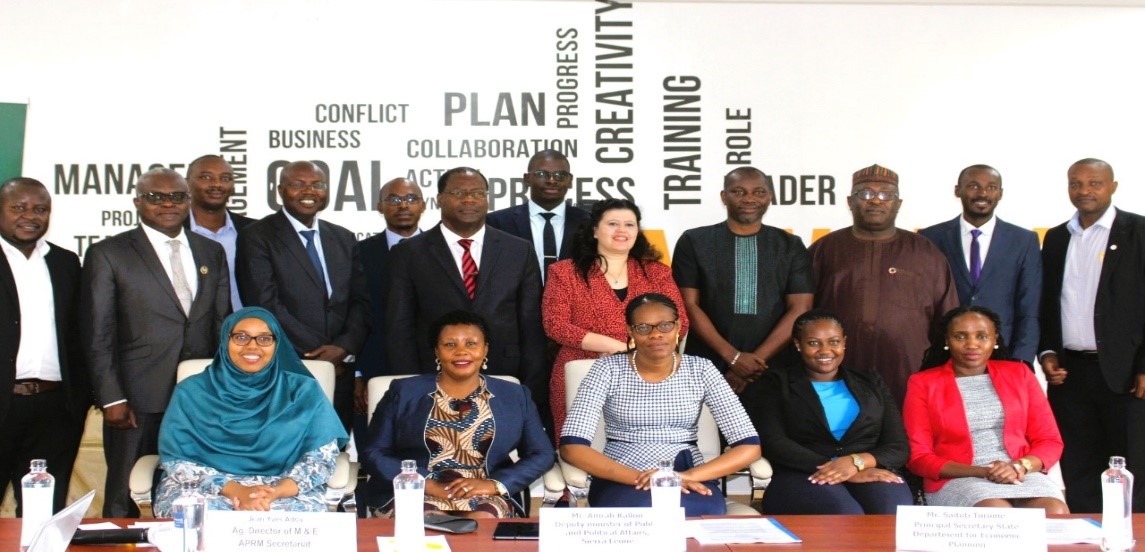
The technical consultations on aspiration three of AU 2063/SDG 16 progress Report in Africa took place from Monday, 28th November, to Wednesday, 30th November, 2022 in Nairobi. This included a two-day training and piloting of governance index data collection tool held from Wednesday, 30th November to Friday, 2nd December 2022. The governance index will allow each of the selected country to measure its performance in governance against itself over the reference period.
The AU Agenda 2063 is Africa’s blueprint for more peaceful, advanced and integrated continent. The technical consultations were organized based on the fact that economic and political integration are imperative for the continent resilience especially in the face of shocks and disasters. Since 2016 and in alignment with President Kagame calls for AU reforms, the African Union Commission (AUC) and the African Union Development Agency-NEPAD (AUDA-NEPAD) in collaboration with other organizations developed the agenda 2063 First Ten-Year Implementation Plan (FTYIP) 2013-2023.
The First Ten Year Implementation Plan (FTYP) identified select areas as key for achievement during the period 2014 – 2023. To monitor progress with the implementation of the FTYP, the AUC was assigned a mandate to collate and develop Continental-level biennial performance reports on Agenda 2063 in partnership with other AU organs including AUDA-NEPAD, APRM of which Uganda is also a member. This is with the purpose to systematically monitor periodic progress achieved towards the goals set in Agenda 2063 for analysis of outcomes to further inform improvements in the attainment of targets through evidence.
In February 2022, the second (2nd) Continental Report on the Implementation of Agenda 2063 was adopted by the African Union Summit. The report highlighted the gains made in thirty-eight (38) including Uganda, out of the 55 African Union Member States. It also demonstrates achievements and challenges towards pursing these goals and aspirations. Emanating from the monitoring and evaluation efforts, overall Member States registered satisfactory performance and ‘reported progress in promoting good governance, democratic values and practices”. However, domestication of the African Charter on Democracy, Election and Governance’ (ACADEG) is yet to be fulfilled and improved by many other African countries.
In this regard, the SDG Secretariat in collaboration with the SDGs Centre for Africa and African Peer Review Mechanism is participating in the development of a joint report on progress made towards SDGs and Aspiration 3 in Africa. The main objective of the report is to provide a comprehensive diagnostic review of progress Aspiration three of AU 2063 and SDG 16 of Agenda 2030 in Africa. Specific objectives are to:
- Assess the extent of progress in achieving respective governance by African countries nations and identify gaps that still need to be addressed within the context of the SDG 2030 and AU 2063 agendas.
- Identify the factors, practices, policies and strategies that may affect governance. This will include mapping of progress on some SDG and AU 2063 related indicators still on institutional capacity and governance.
- Provide lessons and best practices from case studies.
- Build consensus while mapping out clear policy and implementation pathways
Uganda’s participation in the Technical Consultation on Aspiration 3 of AU 2063/SDG 16
The Cabinet meeting held on 10th October 2022, extended the mandate of the National SDG Secretariat, in the Office of the Prime Minister to take on an additional role of coordinating the follow-up on the African Union Agenda 2063 since it has not been well coordinated since its adoption and the United Nations Sustainable Development Goals (SDGs).
Aspiration three of Agenda 2063 focuses on an Africa of Good Governance, Democracy, Respect for Human Rights, Justice and the Rule of Law while goal SDG 16 focuses on efficient, strong and effective institutions and peaceful societies. As such, Uganda participated to not only share its experiences with the rest of the member states but also to learn from them especially on good practices by other countries to achieve Governance. Uganda also participated in the piloting of the Governance Index in Kenya.

